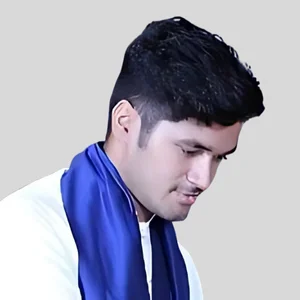

Hire The Best Aviation Tutor
Top Tutors, Top Grades. Without The Stress!
10,000+ Happy Students From Various Universities
Choose MEB. Choose Peace Of Mind!
How Much For Private 1:1 Tutoring & Hw Help?
Private 1:1 Tutors Cost $20 – 35 per hour* on average. HW Help cost depends mostly on the effort**.
Aviation Online Tutoring & Homework Help
What is Aviation?
Aviation is the science and practice of designing, producing and operating aircraft. It covers airplanes, helicopters, gliders, unmanned aerial systems (UAS), and the regulation of air traffic. Engineers, pilots, air traffic controllers and maintenance technicians all play vital roles in ensuring safe flight operations.
Popular alternative names: • Aeronautics • Air transport • Air navigation • Flight industry • Aerospace operations • Sky transportation
Major topics/subjects in Aviation include aerodynamics (examining lift, drag; wind-tunnel tests), propulsion (jet turbines, piston engines), avionics (aircraft electronics, GPS – Global Positioning System), flight mechanics, structural materials (composites, aluminum alloys), navigation systems, human factors (pilot decision‑making), air traffic management and safety certification. Real‑life examples: wind‑tunnel testing of wing models, jet engine maintenance on commercial airliners, cockpit automation used in modern airliners, UAS drone programming for aerial surveying.
A brief history of Aviation’s most important events: The Montgolfier brothers launched the first hot‑air balloon in 1783. In 1903, the Wright brothers achieved powered flight at Kitty Hawk. World War I spurred rapid advances in fighter planes. The first commercial passenger flight took off in 1914. Jet propulsion emerged with the Heinkel He 178 in 1939. Boeing’s 707 ushered in the jet age in 1958. Concorde’s maiden flight in 1969 marked supersonic travel. In 1972, satellites improved navigation via GPS. Unmanned aerial systems boomed in the late 1990s. Private companies now push space tourism with reusable rockets, shaping teh future of flight.
How can MEB help you with Aviation?
If you want to learn about airplanes and flying, At MEB we offer personal 1:1 online aviation tutoring. If you are a school, college, or university student and need top grades on assignments, lab reports, live tests, projects, essays, or dissertations, try our 24/7 instant aviation homework help. We prefer WhatsApp chat, but if you don’t use it, you can email us at meb@myengineeringbuddy.com.
Although we help students everywhere, most of our students come from the USA, Canada, the UK, the Gulf, Europe, and Australia.
Students ask for our help because some subjects are hard, there are too many assignments, questions are tricky, or they have health or personal problems. Others work part‑time, miss classes, or find it hard to keep up with their professor.
If you are a parent and your ward is struggling in aviation, contact us today to help them ace exams and homework. They will thank you!
MEB also supports over 1,000 other subjects with expert tutors to make learning easier and stress‑free.
DISCLAIMER: OUR SERVICES AIM TO PROVIDE PERSONALIZED ACADEMIC GUIDANCE, HELPING STUDENTS UNDERSTAND CONCEPTS AND IMPROVE SKILLS. MATERIALS PROVIDED ARE FOR REFERENCE AND LEARNING PURPOSES ONLY. MISUSING THEM FOR ACADEMIC DISHONESTY OR VIOLATIONS OF INTEGRITY POLICIES IS STRONGLY DISCOURAGED. READ OUR HONOR CODE AND ACADEMIC INTEGRITY POLICY TO CURB DISHONEST BEHAVIOUR.
What is so special about Aviation?
Aviation stands out because it combines science, engineering and creativity to make things fly. Students learn about airplanes, rockets and drones. It mixes math and physics with hands-on projects, software and design. Unlike many other subjects, aviation has a clear goal—to make safe, efficient flight. This real-world focus and the chance to shape the future of travel makes it special.
Aviation offers exciting jobs, strong pay and work around the globe. You gain skills in problem solving, design, software and teamwork. However, it demands strict safety rules, tough math and physics courses, and high training costs. Seats in top programs can be limited and exams are hard. Compared to many other fields, learning aviation can be more intense but leads to rewarding careers.
What are the career opportunities in Aviation?
After finishing a bachelor’s in aerospace or mechanical engineering, many students move on to specialized master’s programs in aeronautics, avionics, unmanned systems, airworthiness, or space engineering. There’s also growing interest in data science for flight operations, air traffic management, and sustainable aviation technologies. Some opt for airline management or aviation safety and security certificates.
The aviation field offers roles from piloting and air traffic control to aircraft maintenance, avionics repair, and flight operations planning. Emerging jobs include drone operations manager, unmanned aerial systems engineer, and aviation data analyst. Research positions in aerodynamics and propulsion are on the rise, along with roles in environmental compliance and green aircraft design.
Pilots fly commercial or cargo planes, following strict procedures and communicating with ground control. Aircraft maintenance technicians inspect and repair engines, electronics, and structures. Air traffic controllers guide flights safely through busy airspace. Avionics engineers develop and test navigation, communication, and monitoring systems.
Studying aviation and preparing for its tests ensures you know safety rules, technical systems, and regulations. It builds skills in aerodynamics, weather analysis, and flight planning. This knowledge leads to higher safety, better decision‑making, and opens doors to well‑paid, in‑demand careers in a fast‑evolving industry.
How to learn Aviation?
Start by building a strong base in math and physics. Break the topic into parts like aerodynamics, aircraft systems, navigation and regulations. Find a beginner’s textbook or online course and follow it chapter by chapter. Watch short videos on each topic, take notes, and do quiz questions after every lesson. Use a simple flight simulator to see theory in action. Review your notes weekly and practice problem‑solving until you feel confident.
Aviation can seem large because it covers many technical areas, but it isn’t impossible. If you pace your study, practice regularly, and connect ideas instead of memorizing them, you’ll find it manageable. Everyone learns at their own speed—focus on one topic at a time and build up your skills steadily to avoid feeling overwhelmed.
You can start on your own using free guides, videos and simulators. However, a tutor helps you stay on track, clears doubts quickly and gives feedback on weak spots. If you get stuck on tough concepts or need motivation, a tutor’s guidance can speed up your progress and boost your confidence.
Our MEB tutors offer 24/7 one‑on‑one help in aviation theory, exam prep and assignments. We match you with a tutor experienced in aerospace engineering who’ll design lessons around your goals. Whether you need step‑by‑step study plans, live problem solving or mock tests, we’re here to make learning easier and more affordable.
Time varies by goal. Grasping basic theory takes about 2–3 months with 5–7 hours of study per week. Preparing for a private pilot exam takes 3–6 months if you’re consistent. Advanced certifications or degree‑level courses span 6–12 months or more. Set realistic milestones, track your hours, and adjust your plan as you improve.
YouTube: King Schools, Boldmethod, FAA’s official channel. Websites: FAA.gov, Skybrary.aero, AOPA.org. Books: Pilot’s Handbook of Aeronautical Knowledge by FAA, Aerodynamics for Naval Aviators by NASA, Airplane Flying Handbook by FAA. These resources cover fundamentals, test prep and practical tips to guide your study from beginner to advanced levels.
College students, parents, tutors from USA, Canada, UK, Gulf etc., if you need a helping hand, be it online 1:1 24/7 tutoring or assignment help, our tutors at MEB can help at an affordable fee.


















